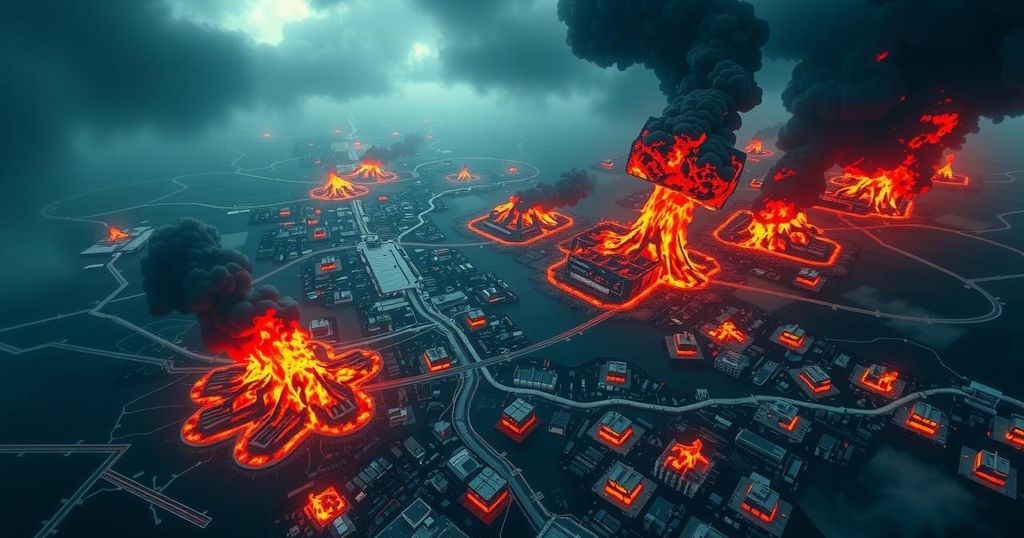World Weather Attribution Report Links 570K Deaths to Climate-Related Disasters
A World Weather Attribution report links approximately 570,000 global deaths over two decades to extreme weather events intensified by climate change. Notable incidents include a drought in Somalia that resulted in over 250,000 deaths and Cyclone Nargis in Myanmar, which claimed nearly 140,000 lives. Researchers utilized climate models to analyze the impact of human activity on these disasters, revealing alarming implications as the planet approaches potentially catastrophic warming levels. Experts urge immediate action to mitigate further impacts.
A recent assessment conducted by World Weather Attribution (WWA) has revealed a staggering link between climate change and extreme weather events, attributing approximately 570,000 deaths globally over the past two decades to human-induced climate disruptions. The report identifies ten significant weather events, including three devastating hurricanes, four lethal heatwaves, two severe droughts, and a catastrophic flood, all intensified by climate change variations. The analysis specifically highlights a drought in Somalia in 2011 as the deadliest, claiming over 250,000 lives, followed by Tropical Cyclone Nargis in Myanmar, which resulted in nearly 140,000 fatalities in 2008, and a devastating heatwave in Russia in 2010, which caused more than 55,000 deaths. These three disasters accounted for a substantial portion of the recorded fatalities. To assess the influence of climate change on these incidents, researchers utilized advanced computer models resembling those used for forecasting future weather patterns. They conducted simulations of climate conditions both with and without the impact of industrialization, thus providing a comparative analysis against current natural disasters occurring amidst 1.2 degrees Celsius of global warming. This insightful study arrives in the wake of a United Nations report indicating that the planet is on course for a concerning 3 degrees Celsius temperature rise by the end of the century. Dr. Friederike Otto, the co-founder and leader of WWA at the Center for Environmental Policy at Imperial College London, emphasized, “Climate change is not a distant threat. It worsened extreme weather events that left more than 570,000 people dead. This study should be an eye-opener for political leaders hanging on to fossil fuels that heat the planet and destroy lives. If we keep burning oil, gas and coal, the suffering will continue.” Furthermore, Roop Singh of the Red Cross Red Crescent Climate Centre noted the alarming implications of the report, asserting, “The massive death tolls we keep seeing in extreme weather shows we are not well prepared for 1.3°C of warming, let alone 1.5°C or 2°C.” Thus, this report serves not only as a critical analysis of the direct ramifications of climate change on human life but also as a clarion call for urgent and substantial action to mitigate further climatic disruptions.
The increasing frequency and severity of extreme weather events are becoming perennial concerns as climate change continues to alter global environmental conditions. Numerous reports have emerged linking these disasters to human activity, particularly in the context of fossil fuel consumption and industrial practices that exacerbate the global climate crisis. The deaths and destruction caused by extreme weather are a pressing issue for humanitarian organizations, governments, and scientists alike, as they strive to understand and combat the impacts of climate change effectively.
In conclusion, the findings of World Weather Attribution illustrate a profound relationship between human-induced climate change and the increasing death toll from extreme weather events. The staggering figure of 570,000 fatalities over the past two decades underscores the urgent need for action to reduce greenhouse gas emissions and prepare for the inevitable impacts of climate disruption. With warnings from both scientific experts and humanitarian organizations, it is imperative for political and social leaders to confront the reality of climate change and its far-reaching consequences.
Original Source: www.theinertia.com




Post Comment